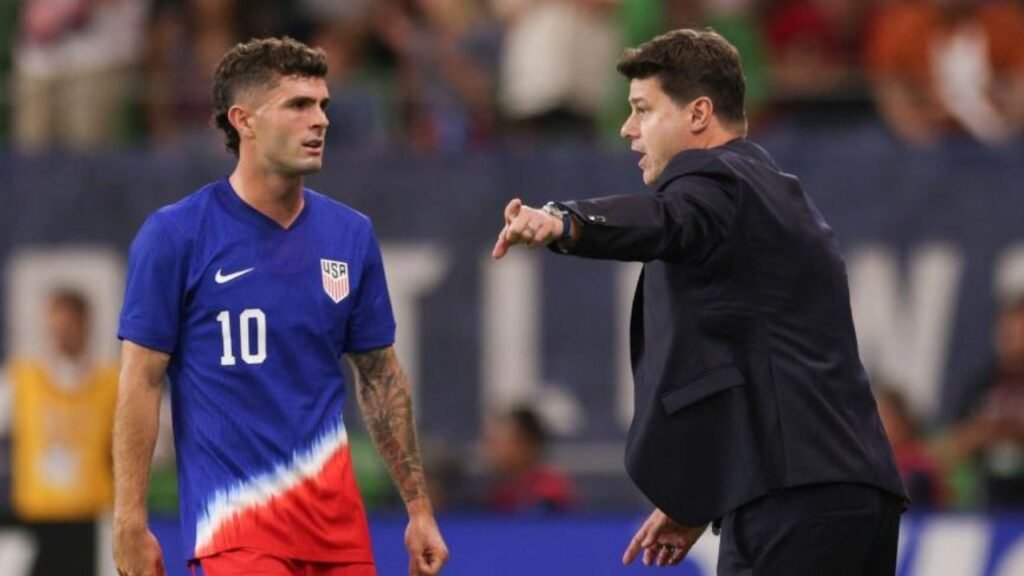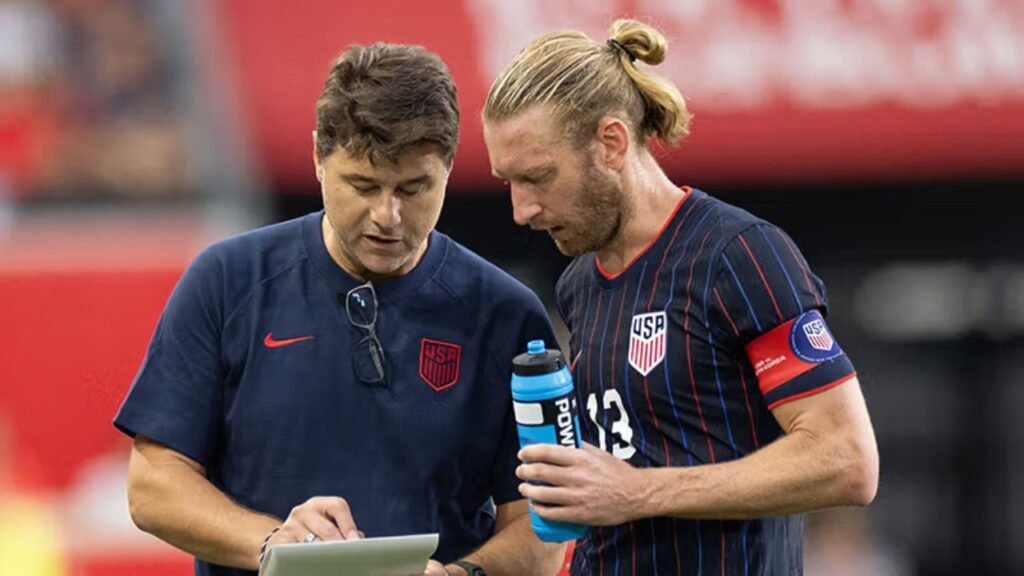When Mauricio Pochettino took over the U.S. men’s national team (USMNT), many fans expected fiery speeches, motivational phone calls, and an open-door policy to every player hoping to wear the Stars and Stripes. What they got instead was silence, rather deliberate silence.
According to reports from journal “The Athletic,” the Argentine soccer coach doesn’t call players to explain roster cuts. He doesn’t text them clips of mistakes or words of encouragement after club matches. In fact, unless you’re in camp, you probably won’t hear from him at all.
For some, it feels harsh. For others, it feels refreshing. But one thing is clear: Pochettino isn’t here to hold hands, he’s here to build a team that fights for its place on merit alone.
This article looks at why Pochettino has chosen this “silent” path, how it contrasts with the Greg Berhalter era, and what it might mean for the USMNT’s future.
Pochettino’s era of leadership for the USMNT is shaking up old habits

Gregg Berhalter, the former USMNT coach, was all about communication. He called players, sent video clips, even FaceTimed them to check in. For him, relationships mattered as much as tactics. He wanted players to feel connected, valued, and prepared.
Pochettino, on the other hand, has gone in the opposite direction. His philosophy is simple: your club performances should speak for you. If you’re good enough, he’ll notice. If you’re not, you’ll know why you weren’t selected without needing a phone call.
It’s a very “old-school” approach, one that reminds some of players like Thierry Henry and Jamie Carragher, who talked about growing up under national team coaches that rarely reached out. For Pochettino, it’s not about being cold or distant. It’s about keeping focus solely on the pitch.
Why silence can actually be a strategy
At first glance, not talking to players might seem risky. Wouldn’t that create confusion? Wouldn’t young players need reassurance?
Pochettino sees it differently. His silence is a test, which is indeed a constant challenge to his USMNT squad. If you want to be called up, prove it every weekend in your club jersey. Don’t wait for a pep talk from the national team coach.
By avoiding personal promises or constant communication, Pochettino also avoids the trap of favoritism. Under Berhalter, some critics felt the core group of players was “protected” no matter their form. Pochettino’s distance makes it clear: no one’s spot is guaranteed.
And in some ways, it might even be freeing. Players know that the only language that counts is performance.
How are USMNT players reacting to Pochettino’s approach

Christian Pulisic has admitted to “The Athletic” that it’s different. He’s used to coaches checking in, and he appreciates when they do. But he hasn’t complained. Neither have most of his teammates.
Striker Josh Sargent, for example, found out by email that he wasn’t in the squad for the Gold Cup. He never heard a word from Pochettino or his assistants. But instead of sulking, he used the time to recover, worked hard at Norwich, and won his place back.
Team captain, Tim Ream, say the quiet approach works once you’re in camp. The bonds are built face-to-face, not over WhatsApp. The message is consistent: train hard, compete, and your place is earned.
Pochettino might be visioning the bigger picture for the U.S. Soccer
Both Berhalter’s constant contact and Pochettino’s silence reflect two different philosophies in the USMNT. The previous one leaned on relationships, the current one on ruthless competition.
For the USMNT, which is preparing for a home World Cup in 2026, the bigger question is which style will better prepare the team for the pressure to come. Americans generally like transparency and communication, but soccer is global, and Pochettino’s method is closer to what many European and South American stars experience.
If it works, the Argentine boss will be praised as the coach who toughened up a generation of U.S. players. If it doesn’t, silence could quickly be seen as indifference. Time will tell whether this less talking strategy can actually create a stronger, hungrier U.S. men’s national team in the 2026 FIFA World Cup
